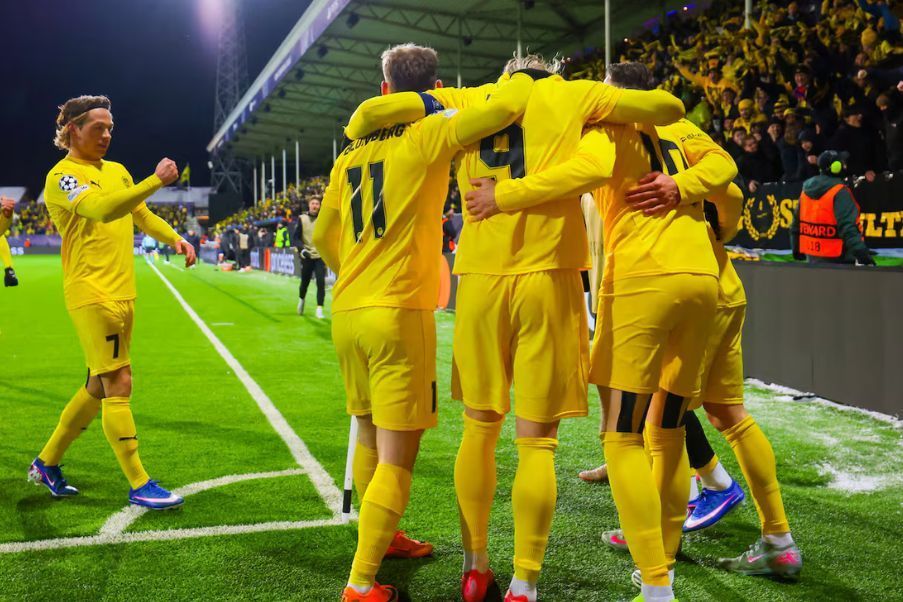Premier League confirms for another summer that it is by far the dominant force
The football english league, according to Transfermarkt data, have so far spent the astronomical sum of 2.39 billion euros on the acquisition of new players.
The 20 clubs in the Premier League, according to Transfermarkt data, have so far spent the astronomical sum of 2.39 billion euros on the acquisition of new players. At a time when the Spanish La Liga was limited to 518 million, that is, five times less.
Within this scenario of unequal distribution of resources, only two Spanish teams manage to find a place in the world's top 10 clubs with the greatest investment activity: Atletico Madrid with 175 million euros and Real Madrid with 167.5 million euros.
This “Spanish exception” proves that, despite the obstacles, the two big clubs in Madrid insist on investing to remain competitive at home and abroad.
Real Madrid, with new coach Vasco, Xabi Alonso, remains steadfast in its strategy of strengthening with talent. They acquired, among others, the 18-year-old Argentine left-footed midfielder, Franco Mastantuono, for the sum of 62.3 million euros, and the central defender Dean Huysen (of Dutch and Spanish origin) for 59 million euros. Atletico, on the other hand, made their most expensive move with Alex Baena from Villarreal, giving 42 million euros in one-off and another 13 million euros in bonuses.
However, this reinforcement seems like a drop in the ocean compared to the investments of English clubs. 8 of the top 10 clubs with the highest spending belong to the Premier League.
The leaders among them are of course the champion Liverpool with expenditures amounting to 293.68 million euros. The London, World champion of 2025, Chelsea with 279.65 million. The ambitious Manchester United with 229.7 million. and Mikel Arteta's Arsenal who, after the 224.2 million euros they have spent on their reinforcements, hope to be the first to cut the thread this season.
Manchester City, who followed a more prudent policy last season, is now re-entering the game and has already spent 176.9 million euros. Now, they are interested in acquiring both the Italian international goalkeeper, Gigi Donnarumma (he is leaving Paris Saint-Germain but in exchange for money, of course) as well as the 23-year-old Brazilian striker of Real Madrid, Rodrygo, who is not included in Xabi Alonso's plans for the upcoming season and who is valued at 100 million euros.
Among the "new entrants" in the top 10 are also Burnley and Sunderland, teams that in other times would have been considered outsiders in the transfer market.
...the others
The financial gap between the Premier and the rest of Europe is also confirmed at the league level. Italy's Serie A spent 848 million euros, but almost balanced its balance with 898 million in revenue. Germany's Bundesliga, with 594 million euros in expenses and 730 million in revenue, recorded a surplus of 136 million euros. France's Ligue 1 moved more conservatively with 472 million in expenses and 602 million in revenue, while in the background the presence of the Saudi Pro League is visible, which spends a lot but does not balance its revenue (369 million in expenses compared to just 75 million in revenue).
LaLiga, which enters the new season with reduced financial strength, seems to be systematically losing ground. Despite the institutionalization of financial controls and the sustainable growth strategy, the Spanish market remains overly dependent on the performance of Madrid’s two big teams. Neither FC Barcelona nor other traditional powers managed to enter the top 10 in spending this year, which shows the generalized slump.
The broader conclusion is that the Premier League is not only doubling LaLiga’s revenue, but is also strengthening its investment footprint year after year, accounting for 80% of the largest transfer moves worldwide. This economic dynamic translates into attractiveness for players, coaches, sponsors and television networks, intensifying the vicious circle of strengthening English supremacy. The Spanish LaLiga, with Real and Atletico as the last “shields”, is called upon to redesign its place in the international football system not only based on quality on the pitch, but mainly in terms of economic adaptability.

Manos Staramopoulos
Journalist and Analyst of International Football and Affairs
Chief Editor English Zone of Discoveryfootball.com
Athens (Greece)














